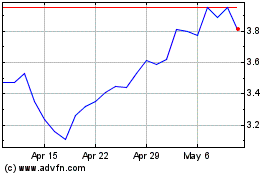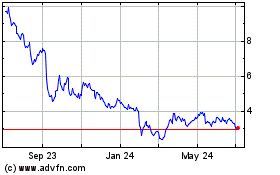Labour unrest becomes main headache for government; Brazil’s
World Cup security budget five times South Africa’s
Today, IHS Inc. (NYSE: IHS), the leading global source of
critical information and insight, released findings from its study
on security risks for each of Brazil’s 12 World Cup host cities.
The Latin America Country Risk team at IHS identified theft and
disruption due to labour unrest as the two main risks for
visitors.
The study examined physical risks to visitors across the violent
risk spectrum (including murder rates, armed robberies, historical
crime data, previous social protests and strike action) as well as
potential infrastructure and transport constraints. It also
evaluated the broader political and business environment in which
the tournament will take place.
Brazil’s World Cup security budget five times South
Africa’s
Significantly, the study observed that Brazil’s World Cup
security budget is approximately five times the size of South
Africa’s when it hosted the games. Approximately US$840 million
will be spent on securing the games and around 170,000 security
personnel will be deployed. According to Brazil’s security agency
for major events, Brazil will spend US$520 million in the provision
of security for the World Cup; to this must be added additional
US$320 million allocated to the armed forces, which has been tasked
with special operations for border protection. South Africa spent
about US$175 million in security provision during the 2010 World
Cup.
“While it is more expensive to operate in Brazil than South
Africa, the Brazilian authorities have invested heavily on security
and defence equipment to combat a wide range of challenges across
the 12 host cities,” said Laurence Allan, Ph.D., head of Latin
America country risk analysis at IHS.
Labour unrest becomes government’s main headache
“Labour unions and the threat of strike action has become the
Brazilian government’s main headache,” Carlos Caicedo, principal
Latin America analyst at IHS Country Risk said. “Previously, social
unrest was thought to be the main potential disruptor of the games,
but unions will play the role of disruptor alongside the World
Cup,” Caicedo said.
In January 2014, rubbish collectors in Rio de Janeiro went on
strike and received a 30 percent salary increase. “Since then, we
have seen federal government employees, bus and train drivers,
teachers and other essential labour groups threaten strike action,”
Caicedo said.
Risk breakdown by city
Risk varies widely both between and within each of the host
cities. But, overall, the main concern across the 12 host cities is
street crime.
In general terms, cities in the northeast – Fortaleza, Salvador,
Recife – show high rates of theft and armed robbery, whilst cities
including Manaus, Curitiba, Cuiabá, and Porto Alegre have lower
risk levels in that respect.
“The risk to visitors traveling to host cities can be grouped
into three categories: cities with a high risk of theft; a high
risk of theft and disruption from protests; and those with a lower
risk of theft and disruption. The cities are roughly split between
all three categories,” Allan said.
Cities with a high risk of theft
Fortaleza will host World Cup matches for countries such
as Brazil, Costa Rica, Côte d'Ivoire, Germany, Ghana, Greece,
Mexico and Uruguay. Fortaleza is the seventh most dangerous city in
the world, according to the United Nations Office on Drugs and
Crime (UNODC) and visitors are likely to face a significant risk of
theft. Some hotels and tourism areas are located in districts
considered hotspots for crime. As in other host cities, an
integrated command and control centre has been set up, which brings
together the federal, state, and municipal police in order to
coordinate the response to security incidents during the
tournament. Regarding social unrest, Fortaleza has also experienced
anti-World Cup protests, as well as demonstrations against
corruption and poor public services.
Porto Alegre will host World Cup matches for countries
such as Argentina, Australia, France, the Netherlands and Nigeria.
The most likely risks facing visitors to Porto Alegre are thefts
and violent robberies. Due to the close proximity and ease of
travel from Argentina to southern Brazil, and Argentina’s troubled
history of football hooliganism, there is a significant risk of
football hooliganism. During the tournament, more than 5,500
military police will be deployed along with National Security Force
guards to mitigate crime risks to visitors.
Salvador will host World Cup matches for countries such
as Spain, Germany, Switzerland, France, Netherlands and Portugal.
The carnival in Salvador is infamous for street fighting and
muggings, and there is a risk of similar incidents taking place
during the World Cup. The local government is likely to step up
security to mitigate theft risks, but it plans to use the same
methods adopted during last March’s carnival. During that event, an
average of 118.2 violent incidents was reported each day.
Cities with a high risk of theft and social/labour
protests
Belo Horizonte will host games for countries such as
Argentina, Iran, Costa Rica and England as well as a semi-final.
World Cup visitors are likely to encounter theft risks, given that
some of the hotels located within the city centre are in places
where there have been reports of armed theft. The local and central
governments are stepping up their anti-crime efforts with the
objective of mitigating these risks. Although measures will likely
reduce crime, there is a risk of disruption due to anti-World Cup
protests.
Natal will host World Cup games for countries such as
USA, Italy, Uruguay, Japan and Ghana and is a major destination for
tourists visiting Brazil’s northeast. The most likely risk factors
facing visitors are thefts and violent robberies of personal
possessions and cars. There is also a high probability of
anti-World Cup protests. Protests have been scheduled for June 6,
16 and 19 in Natal. A heavy security presence in areas frequented
by visitors will mitigate risks of violent crime, but social
protests could cause disruption on match days.
Recife will host World Cup matches for countries such as
Costa Rica, Côte d’Ivoire, Croatia, Germany, Italy, Japan, Mexico
and the United States. General levels of criminality in Recife are
above the national average and social unrest and rioting relating
to discontent over the World Cup has increased markedly since early
2013. Policing has made some gains in Recife thanks to the Pact for
Life security programme, but the risk of disruptive civil unrest
remains high.
Rio de Janeiro will host World Cup matches for countries
such as Belgium, Chile, Spain, France and Russia, as well as the
final on 13 July. A ‘fan fest’ on Copacabana beach with live
broadcasts of all the games will also take place in Rio. Thefts and
violent robberies are the most likely risk factors facing
travelers. The state government is introducing a series of security
measures in an effort to reduce rising crime levels and curb civil
unrest.
São Paulo will host at least six matches including the
opening fixture on 12 June and one semi-final. The primary risk to
visitors in São Paulo is theft. The rate of street robbery has been
increasing in 2014, and there is a slight risk of street assault,
particularly near the hotel district in the city centre. There is a
high likelihood of disruptive social protest with associated
vandalism during the World Cup, although protests are likely to be
smaller than those in June 2013.
Cities with a lower risk of theft and disruption
Brasília will host World Cup matches for countries such
as Switzerland, Ecuador, Colombia, Côte d’Ivoire, Cameroon, Brazil,
Portugal and Ghana. Brasília is one of Brazil's safer cities,
particularly its central areas. As the seat of government, the
authorities are accustomed to handling major events and dealing
with protests, and the city has strong infrastructure by national
standards. With a relatively low crime rate in the city itself, the
main risks to visitors are likely to come from disruption due to
potential protests on match days and opportunistic street
crime.
Cuiabá will host World Cup games for countries such as
Australia, Bosnia-Herzegovina, Chile, Colombia, Japan, Nigeria,
Russia and South Korea. The main risk for visitors is severe
transit delays in mobility through the city due to serious
infrastructure bottlenecks in airport and urban transportation.
Although incidents of criminality have risen over the last three
years, Cuiabá is relatively safe compared with cities afflicted by
high crime rates, such as Salvador, in Brazil’s northeast. The risk
of social unrest affecting the World Cup in Cuiabá is much lower
than in other Brazilian host cities. During the June 2013 protests,
Cuiabá was notable for low levels of social unrest.
Curitiba will host World Cup games for countries such as
Algeria, Australia, Ecuador, Honduras, Iran, Nigeria, Russia and
Spain. World Cup security will be very tight in Curitiba and
visitors are likely to be safe walking around the city. Curitiba is
an international reference for innovative urban planning and is one
of the country’s richest cities. The main risk to visitors to
Curitiba is transport delays.
Manaus will host World Cup matches for countries such as
England, Italy, Cameroon, Croatia, the United States, Portugal,
Honduras and Switzerland. Authorities and security forces have
demonstrated their capacity to operate effectively against violent
crime and to police social protest. That capacity will be
significantly boosted by extra World Cup policing. Manaus is an
important regional transport hub situated in the interior of the
Amazon rainforest.
Security lessons from Confederation Cup mitigate
risks
“Social protests are certain to occur in many of the host
cities, but are likely to be on a far smaller scale than those seen
last year during the 2013 Confederation Cup,” Allan said. “The
Brazilian authorities have learned lessons from that experience.
They have set up command and control centres across the 12 host
cities and will be able to flood areas with security personnel if
needed.”
“However, organisers remain able to co-ordinate simultaneous
demonstrations in several state capitals, and Black Bloc anarchist
activists have fought with the police and dominated headlines in
recent media coverage of the protests throughout 2013 and early
2014,” Allan said. “If Brazilian security forces overreact, then we
would see a risk that protests would escalate, as they did in
2013.”
To get a copy of these studies
To inquire about obtaining IHS studies on security risks for
each of Brazil’s 12 World Cup host cities, please contact Dyene
Galantini at dyene.galantini@ihs.com. To arrange interviews with
IHS analysts Dr. Laurence Allan and/or Carlos Caicedo, please
contact Amanda Russo at amanda.russo@ihs.com.
About IHS
(www.ihs.com)
IHS (NYSE: IHS) is the leading source of information, insight
and analytics in critical areas that shape today’s business
landscape. Businesses and governments in more than 165 countries
around the globe rely on the comprehensive content, expert
independent analysis and flexible delivery methods of IHS to make
high-impact decisions and develop strategies with speed and
confidence. IHS has been in business since 1959 and became a
publicly traded company on the New York Stock Exchange in 2005.
Headquartered in Englewood, Colorado, USA, IHS is committed to
sustainable, profitable growth and employs more than 8,000 people
in 31 countries around the world.
IHS is a registered trademark of IHS Inc. All other company and
product names may be trademarks of their respective owners. © 2014
IHS Inc. All rights reserved.
Photos/Multimedia Gallery Available:
http://www.businesswire.com/multimedia/home/20140608005055/en/
IHS Inc.Amanda Russo, +44 208 276
4727Amanda.Russo@ihs.comorPress Team, +1 303 305
8021press@ihs.com
IHS (NYSE:IHS)
Historical Stock Chart
From Mar 2024 to Apr 2024

IHS (NYSE:IHS)
Historical Stock Chart
From Apr 2023 to Apr 2024
